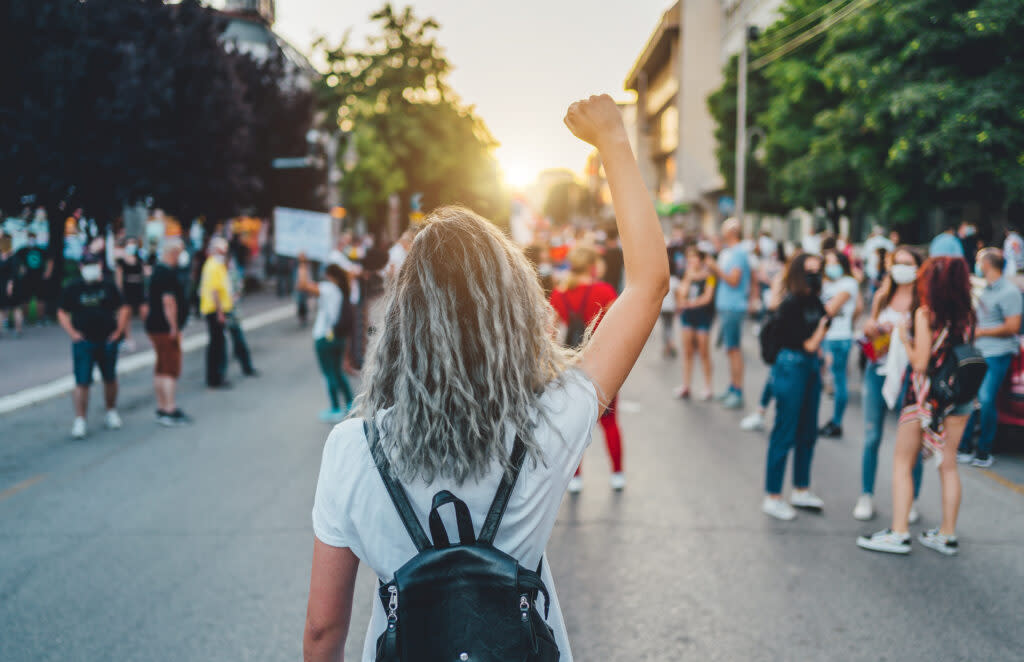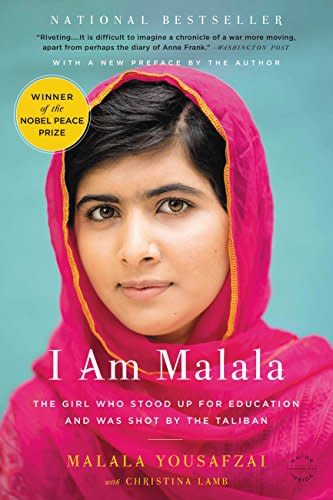Malala Day puts focus on women and children

- Oops!Something went wrong.Please try again later.
Due to the work of previous generations, women have the ability to vote, access education, open a credit card, purchase a home, run for office or control the trajectory of their lives. (Getty Images)
On July 12th, we celebrate International Malala Day in recognition of the youngest Nobel Prize laureate in history and a tireless human rights advocate for the education of women and children.
As a young woman living in Pakistan, Malala Yousafzai was shot by a Taliban gunman in an assassination attempt after leaving school. When she recovered, Yousafzai became a prominent activist focused on worldwide access to women’s education. Her story, and continued dedication to advancing the rights of women, are important not only for women but for democracy.
It is no coincidence that women’s equality, civil rights and democracy are all subject to the rise of authoritarianism. While women’s empowerment is often considered an outcome of democracy, more people are starting to recognize the opposite is true – educated and politically active women are a necessary precursor for democracy.
Authoritarian regimes have reason to fear women’s education and political participation; when women activate and mobilize, mass movements are more robust, sustained and likely to succeed. In addition, outcomes of these efforts are more likely to promote equality, increase democratic participation and advance power-sharing beyond existing hierarchical structures.
Over the last century, women have won the right to vote and worked diligently to expand access to education, economic opportunity and reproductive health care. These hard fought wins, however, are in jeopardy as an assault on women’s rights has corresponded with a broader offense on democracy.
As we recommit in this election year to democratic values and advancing progress for women and other underrepresented populations in the decision making process, it’s important to understand patriarchal backlash as a fundamental strategy of authoritarian regimes. Autocrats and nationalist leaders use a similar playbook to advance hierarchical gender norms and undergird top-down, male-dominated rule to consolidate power. In this respect, independent and politically activated women are a threat to systems of oppression and control…or a powerful weapon against authoritarianism.
Movements that seek progress and the advancement of democratic principles greatly benefit from the participation and leadership of women due to many factors including the need to activate large numbers of people and be resilient in the face of repression. By working collectively and demanding political and economic inclusion, women have the ability to push for democratic transitions that uplift not just them, but their families and communities.
Women across the world have led efforts to demand access to fundamental human rights and inclusion in democracy for the past 100 years. Without the work of these previous generations, women would not have the ability to vote, access education, open a credit card, purchase a home, run for office or control the trajectory of their lives. By restraining women’s agency and limiting their aptitude and ability to participate in a civil democracy, autocratic leaders purposefully look to silence voices and subjugate women socially, politically, economically and culturally.
Women4Change Indiana, a nonpartisan organization founded in 2017, has been increasingly aware of the opportunities and challenges women face in Indiana, the United States and across the world. We recognize how assaults on democracy like weakening rule of law and restrictions on ballot access go hand in hand with efforts to reduce women’s equality.
Working in partnership with the International Leadership Association (ILA), Women4Change is excited to continue dialogue on the relationship between the rise of authoritarianism and the attack on women’s rights. Join us on Sept. 12 as we make connections between women-led movements in other countries and strategize how to mobilize on broad-based issues for marginalized groups to ensure an inclusive democracy.
GET THE MORNING HEADLINES DELIVERED TO YOUR INBOX
The post Malala Day puts focus on women and children appeared first on Indiana Capital Chronicle.


